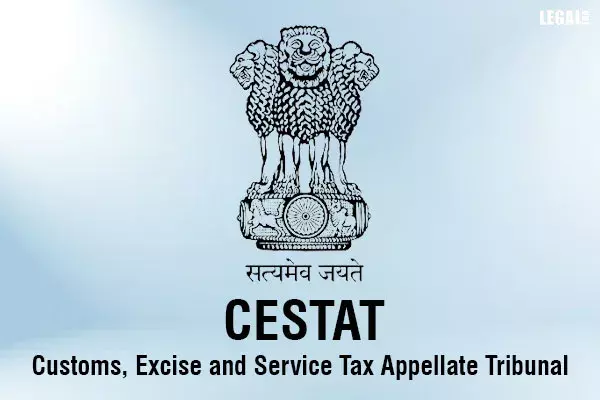CESTAT: Customs Authorities Cannot Deny Duty Exemption Under Advance Licensing Scheme
The New Delhi Bench of the Customs, Excise, and Service Tax Appellate Tribunal (CESTAT) has ruled that Customs authorities;

CESTAT: Customs Authorities Cannot Deny Duty Exemption Under Advance Licensing Scheme
The New Delhi Bench of the Customs, Excise, and Service Tax Appellate Tribunal (CESTAT) has ruled that Customs authorities cannot deny the benefit of duty exemption under the Advance Licensing Scheme, as governed by relevant notifications.
The bench, comprising Dr. Rachna Gupta (Judicial Member) and Hemambika R. Priya (Technical Member), addressed whether goods imported under Advance Authorizations (AAs) qualify for duty-free import under the scheme.
In this case, the appellant, engaged in manufacturing and exporting aluminum foils for pharmaceutical packaging, obtained eight Advance Authorizations (AAs) from the Directorate General of Foreign Trade (DGFT) to import raw materials duty-free, subject to export obligations. The appellant imported the goods under 45 Bills of Entry using Notification No. 18/2015 and classified them under CTH 7607 19 91 of the Customs Tariff.
However, the department contested this classification, arguing that the imported goods were incorrectly classified to match the CTH mentioned in the Advance Authorizations. The revenue claimed that the goods were not worked upon but had only undergone annealing and shifting, making them classifiable under CTH 7607 11 90 instead.
The appellant countered that the customs tariff classification was irrelevant for duty exemption, as the imported materials were covered under the granted Advance Authorizations.
The Tribunal observed that the DGFT had accepted the appellant’s fulfillment of export obligations and issued seven Export Obligation Discharge Certificates (EODCs), with the eighth pending. These certificates discharged the appellant from further export obligations.
The bench emphasized that if Customs authorities believed any licensing conditions were violated, they should have referred the matter to the licensing authority instead of demanding duty on the imported raw materials.
Based on these findings, the Tribunal allowed the appeal.


